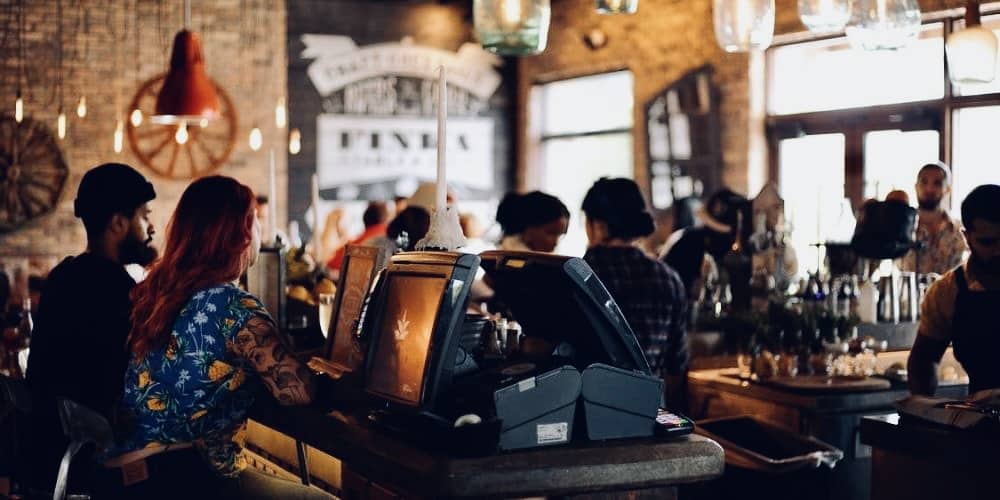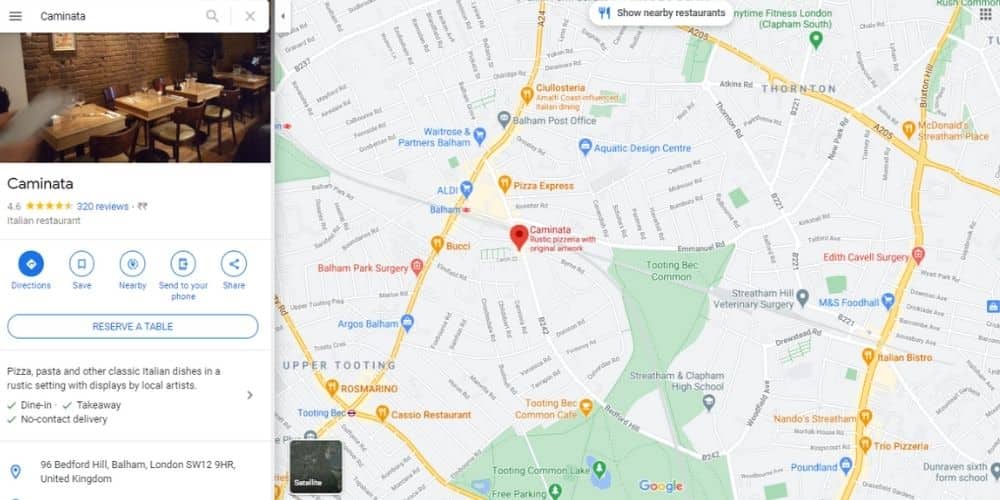With 94% of customers look for online reviews before making a reservation, and 86% try a new restaurant after seeing food-related content online, it’s not difficult to understand why content marketing for restaurants is a no-brainer if you want to run a profitable F&B business.
Below are seven content marketing ideas that you can implement right away to boost your visibility online and organically grow your restaurant business.
Content marketing for restaurants #1
Set up Google Business Profile (it's FREE!)
93% of online experiences begin with a search engine, and Google has a 92% global market share. To be able to win in the competitive market, it’s a must to have your restaurant listed on Google.
Having your Google Business Profile set up allows you to appear not only on Google Search but also on Google Maps, so customers can easily find your location, phone number, business hours and other essential information that you want them to know.
You can also upload photos to promote your signature dishes, and respond to customer reviews to build friendly relationships to boost loyalty.
Content marketing for restaurants #2
Maintain no more than 2 social media accounts
Different social media platforms have different algorithms and techniques of engagement. If you do not have a marketing team dedicated to create content for them all, it’s best to focus on just one or two platforms that are most manageable and perform best for your business.
Start with the platform(s) that you are most familiar with to make content creation less stressful. Or hire a content strategy agency to help identify the right content formats and channels to optimize marketing results.
Content marketing for restaurants #3
Engage micro-influencers
If your objective is to drive more business to your restaurant, micro-influencers can often be better options than macro-influencers.
Micro-influencers are people with 10,000 to 50,000 followers on social media. They are often seen as experts in a particular area, therefore they tend to deliver better marketing returns for brands.
Take Instagram as an example, micro-influencers boast an average engagement rate of 3.86% compared to 1.21% for macro-influencers.
Content marketing for restaurants #4
Promote limited time offers
FOMO (or “fear of missing out”) has already been an effective marketing technique to draw the attention. It’s especially powerful when it comes to convincing indecisive customers to take action.
Whether it is a seasonal special, a guest chef menu, or even a happy hour promotion, create urgency in your announcement to hook your customers into booking a table right away.
Content marketing for restaurants #5
Share user-generated content
User-generated content is one of the easiest content marketing ideas to incorporate into your content marketing strategy.
Just go through your social media pages to find customers who have tagged you in posts or stories and share that to your feeds. Don’t forget to give your customers credits and thank them to build a strong relationship to encourage repeat visits.
Content marketing for restaurants #6
Send emails that customers want to read
Nobody likes receiving spams, so only email your customers when you have content that excites them.
Birthday discounts, exclusive offers, new menu items, things that give your customers reasons to book a table are what you should include in your email marketing.
Don’t feel pressured to send a regular e-newsletter to your customers just because you have collected their email addresses. They rather not hear from you than getting spammed. When it comes to email marketing, it is quality over quantity.
Content marketing for restaurants #7
Make a profitable website
Your website is the most powerful content marketing tool that you have full control of.
You can allow online booking, blow up content you want to highlight, feature five-star reviews, offer vouchers to loyal customers. And more importantly, no one can take it down because you own it (unlike your social media pages which are owned by the platforms).
Don’t just make a website. Make one that comes with a content strategy to help you get more tables booked, because a website that doesn’t attract customers is just an expensive business card.







